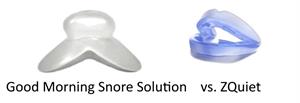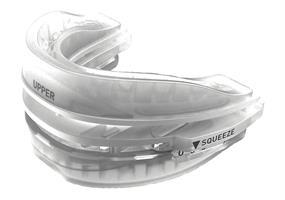 While both devices aim to reduce or eliminate snoring, GMSS works by holding the tongue forward, preventing it from obstructing the airway. ZQuiet, on the other hand, is a Mandibular Advancement Device (MAD), which slightly pushing the lower jaw forward, ensuring the throat muscles don't relax into the airway.
While both devices aim to reduce or eliminate snoring, GMSS works by holding the tongue forward, preventing it from obstructing the airway. ZQuiet, on the other hand, is a Mandibular Advancement Device (MAD), which slightly pushing the lower jaw forward, ensuring the throat muscles don't relax into the airway.
Find Your Snoring Solution
Introduction
The Imperative of Quality Sleep
Sleep is not just a nightly ritual; it's the cornerstone of our health and well-being. Our bodies rely on this quiet time to repair, rejuvenate, and recalibrate for the day ahead.
Our brains consolidate memories, process emotions, and prepare us for cognitive challenges. Quality sleep boosts our immune system, regulates our hormones, and even impacts our weight and skin health.
In an age where our schedules are chaotic and our screen time overwhelming, it has never been more crucial to ensure we are getting restful, undisturbed sleep. It's not just about the quantity but the quality. A night of interrupted sleep can be as detrimental as not getting enough hours of rest.
For reference, we provide detailed reviews on each product:
The Pervasive Problem of Snoring
Snoring is often dismissed as a mere nuisance, a by-product of deep sleep, or something we jest about with family and friends.
However, it's much more than that. For millions around the globe, snoring is a nightly battle, affecting not only their sleep but also that of their loved ones.
When air doesn't move freely through the nose and throat during sleep, it causes the surrounding tissues to vibrate. This vibration produces the familiar sound of snoring. And while many might brush it off, consistent snoring can lead to a myriad of health issues. This ranges from daily fatigue and morning headaches to more severe health risks like sleep apnea, which can lead to cardiovascular problems. Additionally, snoring can strain relationships when a partner's sleep is consistently disrupted.
Enter the Snoring Solutions: GMSS and ZQuiet
While there's no one-size-fits-all answer to snoring, the market is rife with potential solutions, each claiming to be the silver bullet.
Among the front runners in the race to ensure a snore-free night are the Good Morning Snore Solution (GMSS) and ZQuiet. These innovative devices, designed after thorough research and testing, aim to tackle the root causes of snoring and offer the promise of peaceful nights.
As we delve into the intricate details of GMSS and ZQuiet, we will explore how each works, their pros and cons, and ultimately, how to decide which might be the right fit for you or your loved one. Restful nights could be just around the corner.
Understanding Snoring: A Brief Overview
Causes and Types of Snoring
Before diving into solutions, it’s paramount to understand the root of the problem. Snoring, while common, is not a singular condition but rather a symptom of various underlying issues.
-
Nasal Obstruction: A blocked nasal passage, due to colds, allergies, or physical deformities like a deviated septum, can lead to disrupted airflow and result in snoring.
-
Sleep Position: Those who sleep on their back are often more prone to snoring. This position can cause the tongue to drop backward, partially obstructing the airway.
-
Obstructive Sleep Apnea (OSA): One of the more severe causes of snoring, OSA occurs when throat muscles excessively relax, narrowing or closing the airway. Breathing momentarily ceases, leading to lower oxygen levels in the blood.
-
Lifestyle Factors: Alcohol consumption, especially close to bedtime, can relax the muscles of the throat, exacerbating snoring. Similarly, being overweight can increase the fatty tissues in the throat, leading to restricted airflow.
-
Mouth Anatomy: A thick soft palate or an elongated uvula can narrow the airway. The vibration of these tissues during sleep produces snoring sounds.
The Physical and Psychological Implications of Snoring
The repercussions of snoring stretch beyond the nocturnal hours. Its impacts can be felt both physically and mentally, deteriorating overall well-being.
-
Physical Health Risks:
-
Sleep Apnea: Chronic snoring can be a sign of OSA, which is linked to heart disease, hypertension, and stroke.
-
Frequent Waking: A disrupted sleep pattern can lead to daytime fatigue, drowsiness, and headaches.
-
Lowered Immune Response: A consistent lack of quality sleep can weaken the immune system, making one more susceptible to infections.
-
-
Mental and Emotional Strain:
-
Mood Fluctuations: Sleep deprivation can lead to irritability, mood swings, and even depression.
-
Cognitive Impairments: Lack of deep, restful sleep can result in memory problems and difficulty concentrating.
-
Relationship Strain: A snoring partner can lead to disrupted sleep for both parties, often resulting in tension or frustration in the relationship.
-
In understanding the intricacies and potential repercussions of snoring, the importance of addressing this issue becomes crystal clear. It's not merely about noise during the night; it's about quality of life. As we progress, we'll explore two potential solutions: GMSS and ZQuiet, in our quest for quieter, more restful nights.
Good Morning Snore Solution (GMSS): An Overview
How GMSS Works
One of the forefront solutions in the battle against snoring is the Good Morning Snore Solution. But how exactly does this device combat the rumbles of the night?
- Explanation of Tongue Stabilization Device (TSD)
- At its core, GMSS is a Tongue Stabilization Device (TSD). Unlike the more common Mandibular Advancement Devices (MAD) which shift the jaw forward, TSDs work by holding the tongue forward and preventing it from falling back into the throat during sleep. By doing so, TSDs, like GMSS, ensure that the airway remains open, effectively reducing or eliminating the vibrations that result in snoring sounds.
Key Features and Benefits
-
Simplicity: GMSS boasts a design that doesn’t require any complex fittings. Simply insert it into the mouth and it's ready to go.
-
Comfort: Designed to fit a broad range of mouth sizes, its soft, flexible material reduces the chances of discomfort or gum irritation, common with other anti-snoring devices.
-
Effectiveness: Its primary function of preventing tongue collapse has shown significant results in reducing snoring for many users.
-
Durability: Made from high-quality, medical-grade silicon, GMSS promises a long shelf-life, providing value for its cost.
-
Non-Invasive: Unlike some solutions that require surgery or dental fixtures, GMSS offers a non-intrusive remedy to the snoring dilemma.
Potential Drawbacks and Considerations
-
Adaptation Period: As with many mouthpieces, there may be an initial period of discomfort or increased salivation as users acclimate to the device.
-
Not Suitable for Nose Breathers: If one has a nasal obstruction or prefers breathing through the nose, GMSS may not be the ideal choice.
-
Oral Hygiene: Regular cleaning and maintenance are essential to keep the GMSS in top condition and prevent bacterial growth.
User Feedback and Clinical Evidence
-
User Testimonials: A considerable portion of users report a noticeable reduction in snoring intensity and frequency. Many appreciate its comfortable design, citing better sleep quality for both themselves and their partners.
-
Clinical Evidence: Clinical studies have supported the efficacy of TSDs in snoring reduction. A specific study involving GMSS showcased a significant decline in snoring frequencies in participants, validating its effectiveness as a snoring remedy.
In the realm of anti-snoring mouthpieces, the Good Morning Snore Solution stands out with its unique approach, focusing on tongue stabilization. As we continue, we'll juxtapose GMSS with another frontrunner, ZQuiet, to give a clearer picture of potential solutions available for those seeking serene nights.
ZQuiet: An Overview
How ZQuiet Works
Another titan in the realm of anti-snoring devices is ZQuiet. Differing fundamentally from GMSS in its design and function, understanding ZQuiet’s mechanism is pivotal in selecting the right solution for your snoring woes.
- Explanation of the Mandibular Advancement Device (MAD)
- ZQuiet is categorized as a Mandibular Advancement Device (MAD). The primary function of MADs is to slightly advance the lower jaw (mandible) forward during sleep. By doing this, they prevent the airway from narrowing or getting blocked by the relaxed muscles of the throat, which in turn can help mitigate or eradicate the snoring sound. This approach directly addresses one of the main anatomical causes of snoring, making MADs, including ZQuiet, effective for many snorers.
Key Features and Benefits
-
"Living Hinge" Technology: Unlike many rigid MADs, ZQuiet boasts a patented design that allows users to open and close their mouth naturally, offering added comfort.
-
Ready-to-Use: ZQuiet doesn't require the boiling and biting setup that some MADs necessitate. This out-of-the-box readiness ensures user convenience.
-
Multiple Sizes: The device comes in various sizes, ensuring a more personalized and comfortable fit for diverse users.
-
FDA Cleared: ZQuiet's materials and design have met stringent FDA standards, certifying its safety for oral use.
-
Durability: Crafted from thermoplastic elastomer, ZQuiet promises longevity, adding to its cost-effectiveness.
Potential Drawbacks and Considerations
-
Jaw Discomfort: As with most MADs, some users might experience initial jaw discomfort or soreness as they adapt to the new jaw positioning.
-
Oral Hygiene: Like GMSS, maintaining cleanliness is essential. Regular cleaning will ensure the longevity of the device and prevent potential oral issues.
-
Not Ideal for Those with Dental Problems: Those with dentures, braces, or certain dental issues should consult with a dentist before using MADs like ZQuiet.
User Feedback and Clinical Evidence
-
User Testimonials: A significant number of users praise ZQuiet for its effectiveness in reducing or eliminating snoring. The comfort of the "Living Hinge" and the ability to move the mouth while sleeping are frequently highlighted benefits in reviews.
-
Clinical Evidence: Several studies on MADs have demonstrated their efficacy in combating snoring and mild to moderate Obstructive Sleep Apnea. Specific trials with ZQuiet have mirrored these results, showcasing a substantial reduction in snoring intensity among participants.
ZQuiet, with its unique design and proven results, offers a robust solution for many plagued by snoring. As we progress, juxtaposing this device with the likes of GMSS can offer potential users a clearer perspective on their path to a silent, peaceful night.


